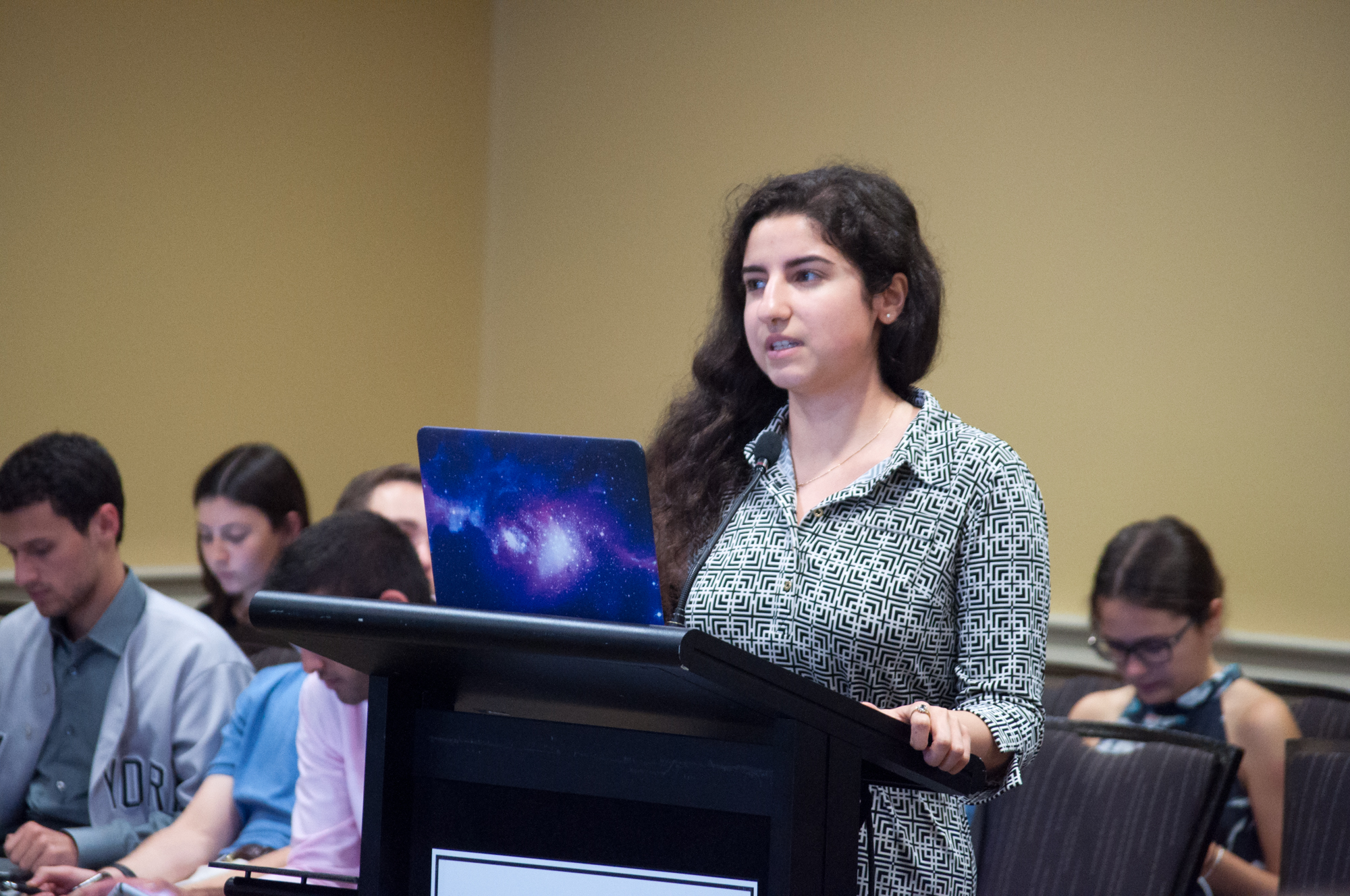After voting to use about one-third of the SGA’s legislative reserves at a Sept. 27 meeting, the organization’s legislature voted to fund the 12th annual Crab Feast with the funds at their meeting Wednesday.
The legislature is providing money for event preparation, including setup and staffing, which is a total of $3,645.
Two weeks ago, the SGA voted to provide $13,158.70 for student group Technica Hacks’ third annual all-female hackathon, after the finance committee advised the legislature against funding the group.
The Crab Feast, which will take place in the North Campus Dining Hall on Oct. 24, is a university tradition for undergraduate students, said Brandon Carroll, director of the SGA’s Tradition Committee.
[Read more: UMD SGA supports US Senate bill that would increase funding for Title IX offices]
“It’s a good way to bring the campus together … and something to look forward to for as long as they are on campus,” said Carroll, a senior information science major.
It’s important that the SGA funds the Crab Feast because it’s popular among undergraduate students, said Paige Rodrigues, a behavioral and social sciences representative and sponsor of the Crab Feast legislation. All of the tickets for the event sold out last year, Rodrigues added.
“I’m from out of state, so before I came to this state I had never heard of Old Bay and never touched a crab,” said Rodrigues, a senior government and politics major. “It was important to combine this really important Maryland tradition and get out-of-state students involved with in-state students and make them feel like they’re part of this greater community.”
While the SGA is spending a large portion of legislative reserves at the semester’s start, Rodrigues said she is not worried because thousands of dollars usually remain unspent by the end of the year.
Last year, there was about $8,000 left in the reserves, said Alia Abdelkader, SGA vice president of financial affairs. The remaining funds transfer to the SGA’s executive reserves for the rest of the fiscal year, according to SGA bylaws.
“I think that all of the events that we have funded are things that have been seriously deliberated and are really important events that deserve funding,” Rodrigues said.
The legislature now has $22,532.74 left in its reserves for the academic year; it started with $39,336.44.
[Read more: After low turnout in recent SGA elections, UMD students express concerns at town hall]
On Sept. 27, the legislature overturned the finance committee’s report and voted to fund Technica Hacks’ event after the group failed to acquire enough funding from corporate sponsors. The legislature’s funding would cover the costs for the event, including setup and security, at the Reckord Armory, according to a University Recreation and Wellness invoice from 2016.
The finance committee submitted an unfavorable report of approving funds for Technica because the event appeared to exclude individuals based on gender, Abdelkader said. Technica Hacks members and past hackathon participants said mentors and volunteers, who can be male, receive the same benefits from the event as hackers, who must identify as female or gender non-binary.
“As a mentor and volunteer you will be hands-on, so you’re still gaining knowledge,” said Tommy Outing, a senior computer science major who volunteered at the hackathon last year.
If Technica Hacks included additional information about the benefits of the event for all genders, it is possible the finance committee would have voted differently, Abdelkader said.
“There was no testament to the level of benefit that males can also get [in the bill] so because of that, we deemed the event exclusionary,” Abdelkader said. “I think it should be a great event, and I fully acknowledge that they’re doing their part to enrich the campus community.”
The finance committee encourages student groups to request funds through SGA’s regular allocation process because there is more money available through that process than there is in legislative reserves. A total of $1,169,907 was available for fiscal 2018, which started July 1.
Technica Hacks did not apply through the regular process because the group would have been eligible to receive only $2,000, the maximum amount of money a group can receive the first time it requests SGA funds, Abdelkader said.
CORRECTION: Due to a reporting error, a previous version of this story incorrectly stated that a group can receive a maximum of $2,000 the first time it requests SGA funds in a fiscal year. A group can receive a maximum of $2,000 the first time it requests SGA funding. This story has also been updated to reflect the available SGA funding after the administration’s approval of the group’s budget memo on Sept. 26.



